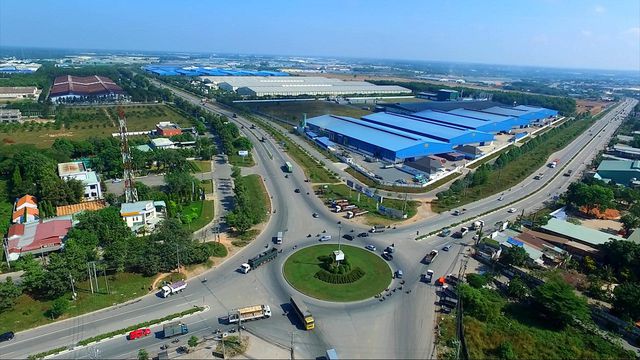The ongoing earnings season has created a divergence among groups of stocks and could derail the market from its short-term uptrend.

The ongoing earnings season has created a divergence among groups of stocks and could derail the market from its short-term uptrend.
Viet Nam’s benchmark VN-Index has increased by total 4.16 per cent from the close of 943.11 points on June 27 to the close of 982.34 points last Friday on expectations for listed firms’ quarterly earnings growth.
It is expected to hit 1,000 points soon during the earnings season when listed companies reveal their results for the April-June period and for the first half of 2019 in the next one or two weeks.
Strong capital inflow has targeted stocks in the banking and industrial real estate sectors in recent weeks and set aside other sectors.
Investors are likely waiting for other potential companies to release their quarterly earnings such as brewer Sabeco (SAB), food and beverage producer Masan (MSN) and property developer Vingroup (VIC).
Expectations for those firms’ earnings reports will keep the market advancing until their results are revealed, making bank stocks the only possible targets at the moment as some of them have announced quarterly earnings, according to Nguyen Viet Quang, director of Yuanta Vietnam Securities’ Ha Noi branch.
Listed banks have acted as the main driving force of the market and their shares have reached investors’ profitability expectations.
Among the best-performing bank stocks, Vietcombank shares (VCB) have gained 13.67 per cent in the last three weeks and more than 20 per cent since early June.
Asia Commercial Bank shares (ACB) have also performed well gaining total 9.09 per cent in the three-week period and 9.47 per cent since early June.
The two banks in recent weeks announced their earnings in the first half of the year had beat previous year’s numbers and fulfilled at least half of their full-year targets for 2019.
Smaller banks like TPBank (TPB), Sacombank (STB) and Vietnam International Bank (VIB) also announced positive results.
Other large-cap bank stocks such as Bank for Investment and Development of Vietnam (BID) and Vietinbank (CTG) are also in focus ahead of their reports.
Beside banks, industrial real estate firms’ stocks such as Nam Tan Uyen JSC (NTC) and Industrial Urban Development JSC No 2 (D2D) have also increased.
According to Tan Viet Securities (TVSI), shares of banks and industrial real estate firms are running out of momentum as their prices have reached short-term peaks while supportive information begins fading.
For other sectors and industries like brokerage, steel and oil and gas, the earnings season has turned out to be not so good.
The two large-cap securities firms SSI Securities Corp (SSI) and HCM City Securities Corp (HCM) last weekend announced their post-tax profits in the second quarter were 38 per cent and 25 per cent lower than those made in last year’s second quarter.
Securities firms went through tough times as global markets were shaken by the US-China trade war and political-geographical tensions around the globe, leading to the modesty of the trading liquidity.
The steel industry has had mixed results among local firms. But the main concern for investors now is how the steel producers will cope with tariffs imposed by the US government on Vietnamese steel exports.
The US is making higher efforts to deal with Chinese exports, which are both exported from China and from third-party countries including Viet Nam.
According to securities firms, the market may turn negative in the next few days as the VN-Index is approaching 990 points – a level that has not been passed since early April.
Stocks will be hit by stronger selling when the VN-Index is near the 990-point level, TVSI said in a note.
A problem on the stock market is that the market growth depends too much on large-cap stocks while small-cap and medium-cap stocks are left behind.
Capital is concentrating on large-cap companies, and if investors look to cash in those stocks and switch to smaller stocks, the market growth will stall and may even fall.
Recent gains are quite short-lived and it takes the market one or two days to decline so that sold shares are absorbed, then the market rises again, Sai Gon-Ha Noi Securities (SHS) said in its weekly report.
It proves investors are trading with appetite for short-term profit and they are willing to sell shares if they reach the expected profitability level, SHS said.
This week, investors will keep their eyes on the US Federal Reserve’s meeting on July 27-28, at which investors are betting on the Fed to cut rates, allowing them to tap low-interest loans to benefit local stocks. — VNS





